Eggs are one of the basic staples on every grocery list, and for good reason.
They're nutritious, they're affordable, and they're just packed with awesome health benefits.
Back in the good old days, almost everyone had a chicken or two to call their own, and got their eggs fresh at home. Now, we mostly buy them in the store, which is usually just fine. Eggs are one of those foods that last for a long time.
Still, it's always good to know exactly how fresh your eggs are.
Most of us pick out our eggs by their expiration date, but it turns out that there may actually be a better way.
The expiration date is just a cautious estimate of how long the eggs will last, it doesn't really tell you that much about your eggs and how fresh they are.
Fortunately, there's an easy way to tell exactly how fresh a batch of eggs is: just check the three-digit code above the expiration!
When you know how to decipher it, this code reveals exactly when your eggs were packed, and how long they've been sitting on the shelf.
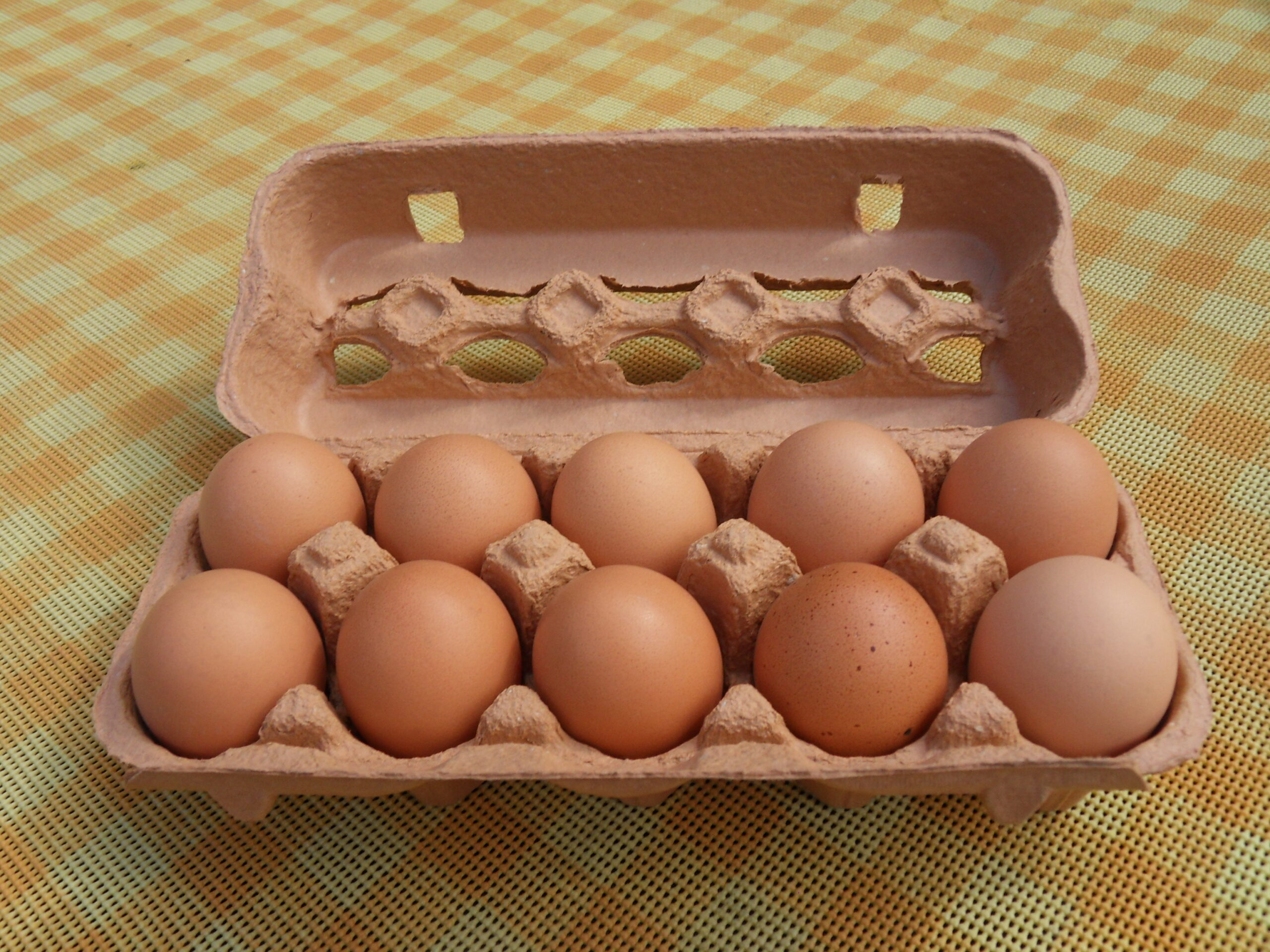
Eggs are a dietary staple, and have been for many years!
The difference today is that you don't get your eggs from your own chicken coop, you get them from the supermarket.
That means that, in some cases, you might have to do a little bit more snooping to figure out exactly how fresh they are.
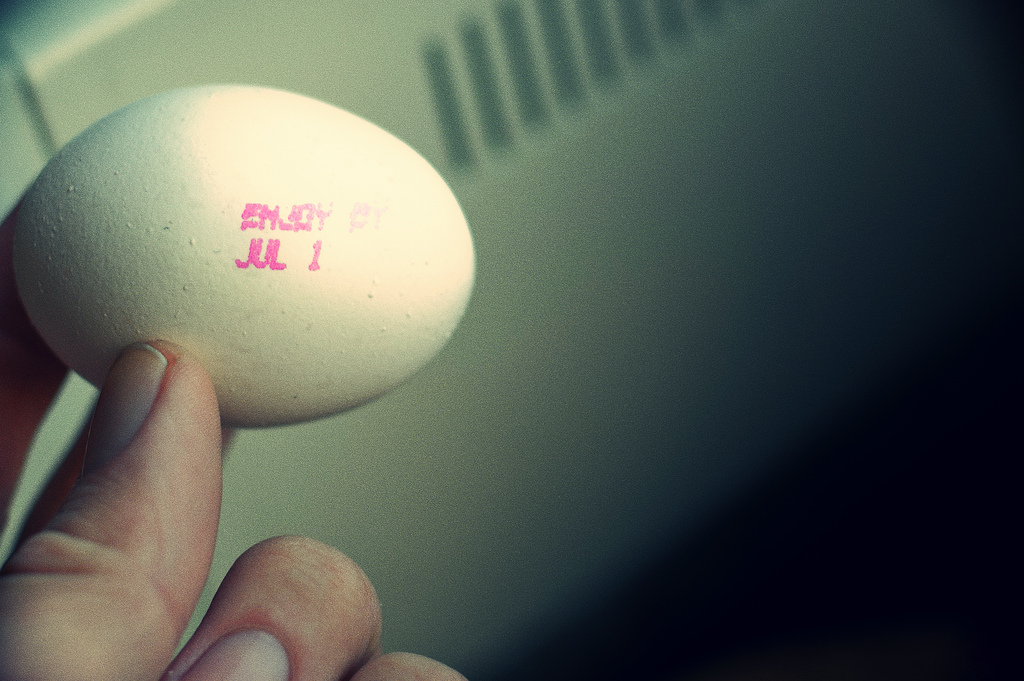
That's partially because eggs hold up so well; a raw egg just laid today will still be fresh enough to eat five weeks from now.
In plenty of cases, a fresh egg might last even longer, up to two months from when it was first laid.
In other words, eggs take a long time to go bad. Meanwhile, the expiration date printed on the box is usually more of a sell-by date, so how long can you really keep eggs for?
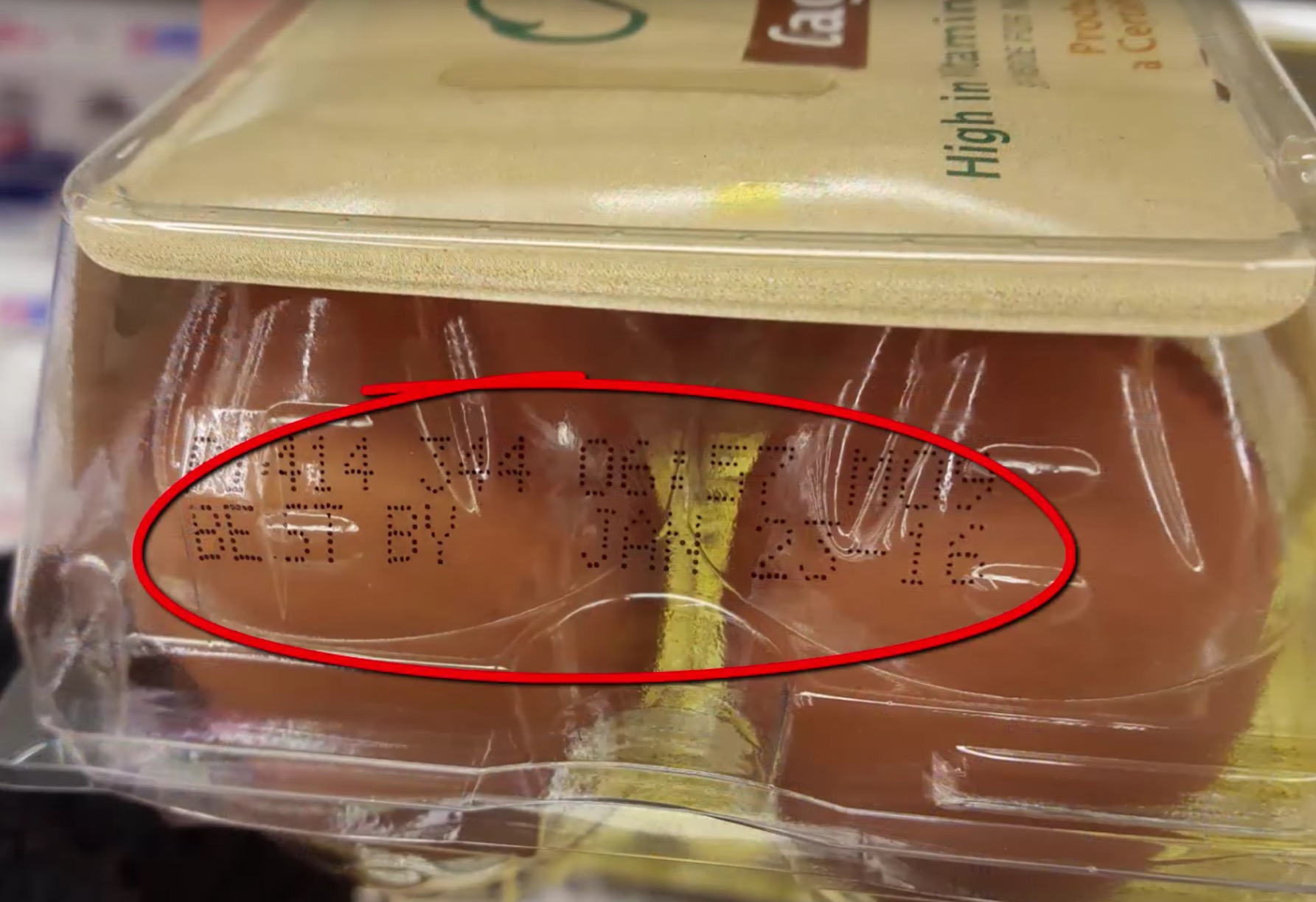
It all starts with the information printed on the side of the egg carton.
Most egg cartons have an expiration date printed on the side, but it's not legally required, so some don't.
A good rule of thumb is to simply eat any eggs you buy at the store within five weeks.
You can also usually eat eggs up to 5 weeks past the expiration date printed on the box.
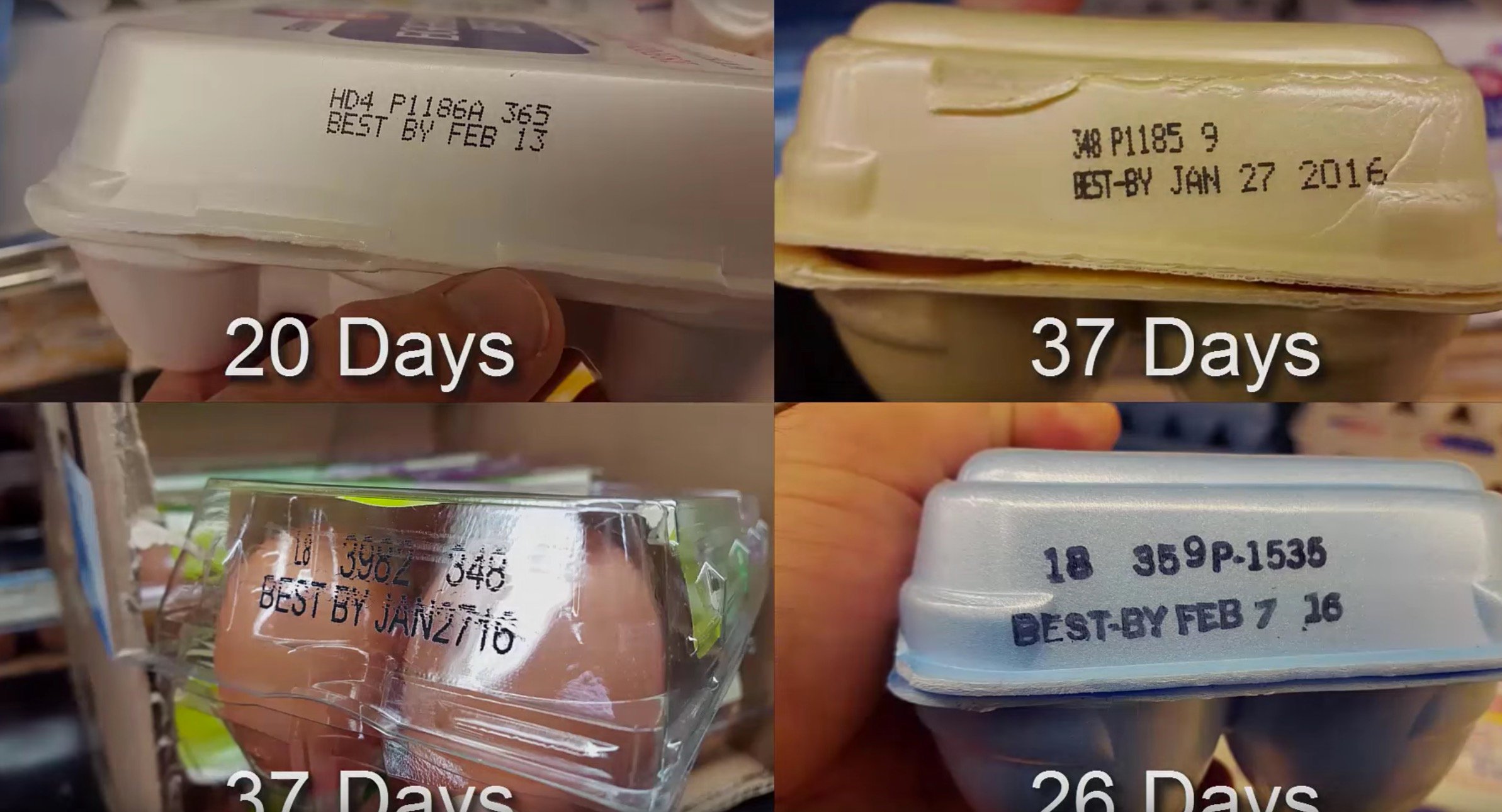
But if you want to know how fresh your eggs really are, you need to check a different number printed above of the expiration date.
There's a long string of numbers and letters printed above the expiration — but there's just one section you need to pay attention to: the 3 digit number embedded somewhere in the code.
It might be in the middle, or off to one side, but you can usually find it easily.
For example, in the top-left corner of the picture above, the 3 digit number is on the right side of the code.
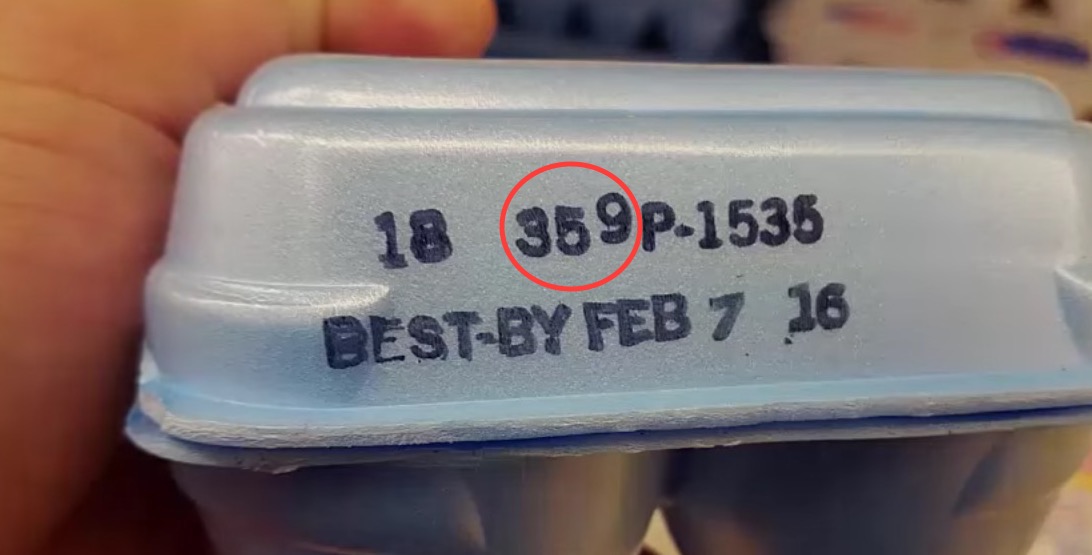
No matter where you find these 3 digits — circled above — it's never a number bigger than 365.
That's because this code represents the exact day of the year that the eggs were packaged and processed.
For example, if the number is 365, the eggs were packaged on the last day of the year, December 31st. I
f they're marked 001, the eggs were packaged on January 1st.
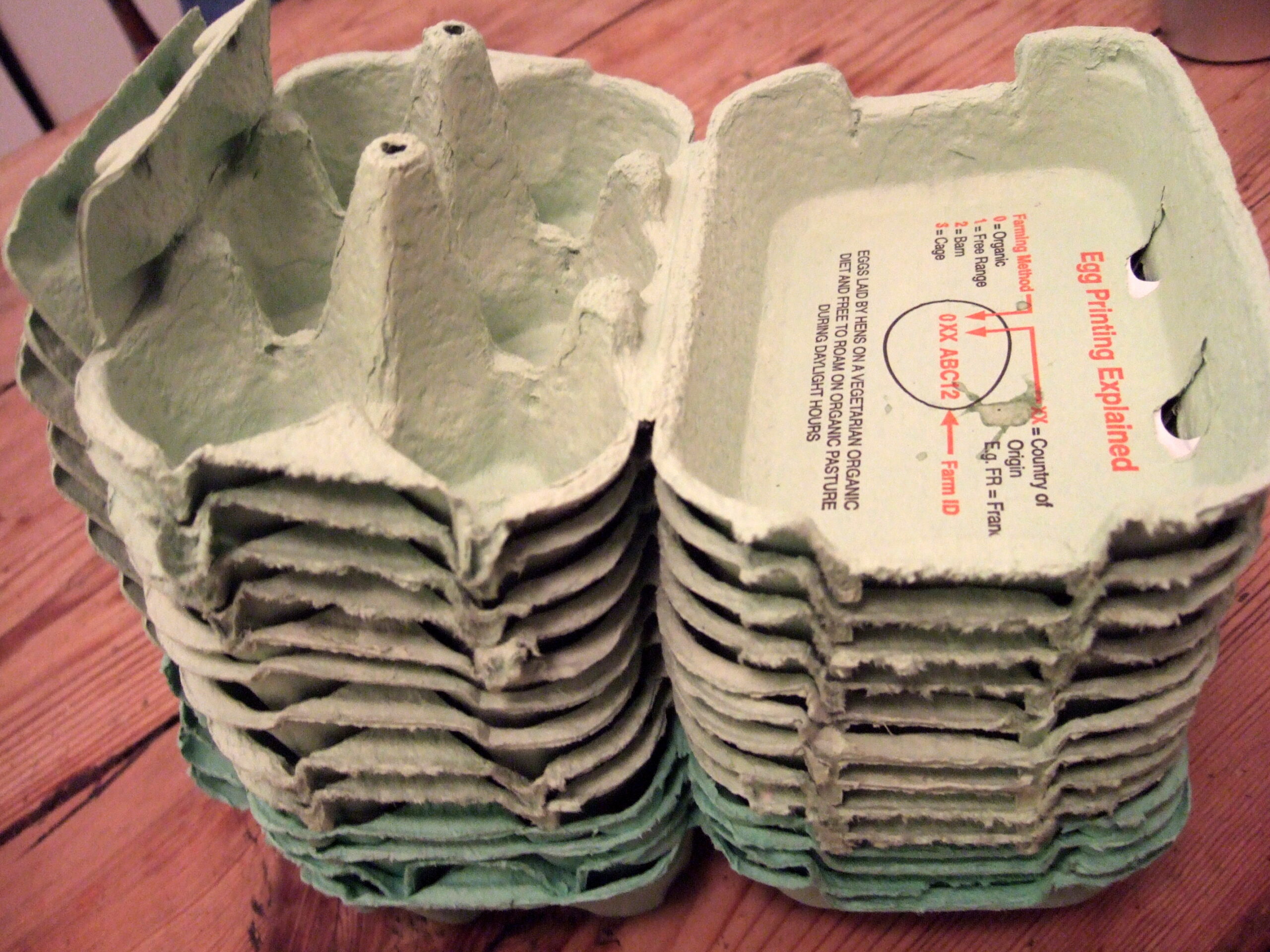
So what does that mean for buying eggs? It means that instead of focusing just on the expiration date, you should look first for the 3 digit code that lines up with the day they were packed.
If you count back to the date and realize that they were packed 20 or more days ago, it's probably a good idea to look for fresher eggs that will keep longer.
On the other hand, if you realize your eggs were just packaged a couple of days ago, you may be able to keep eating them well past the expiration date!
Did you know this trick already? Let us know below, and don't forget to SHARE on Facebook!




